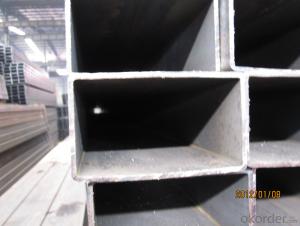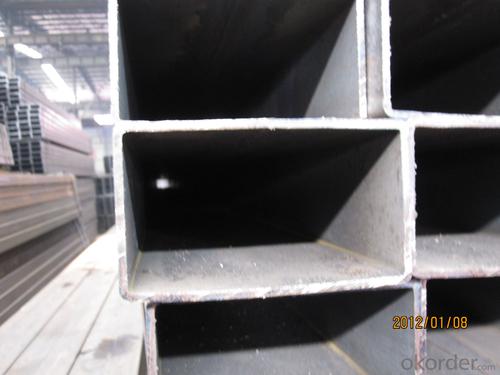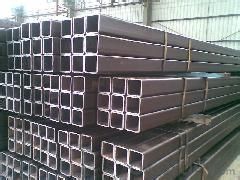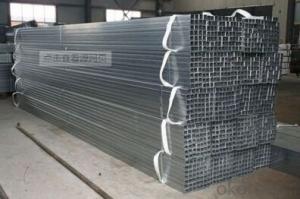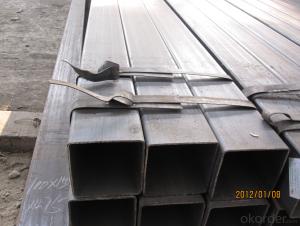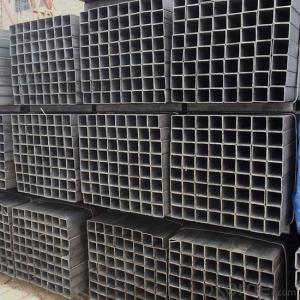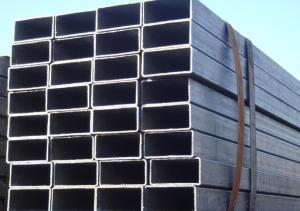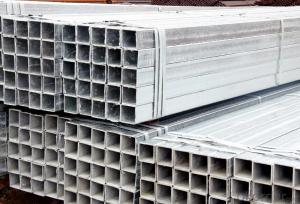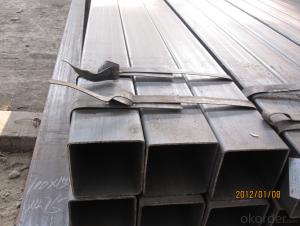Rectangular Hot Rolled Steel Tube
- Loading Port:
- China Main Port
- Payment Terms:
- TT or LC
- Min Order Qty:
- -
- Supply Capability:
- -
OKorder Service Pledge
OKorder Financial Service
You Might Also Like
Quick Details
| Thickness: | 1.0 - 35 mm | Section Shape: | Square | Outer Diameter: | 20*20-600*600 |
| Place of Origin: | Shandong China (Mainland) | Secondary Or Not: | Non-secondary | Application: | Structure Pipe |
| Technique: | Cold Rolled | Certification: | CE | Surface Treatment: | oil,paint |
| Special Pipe: | Thick Wall Pipe | Alloy Or Not: | Non-alloy | Name: | Square Hollow Steel Pipe/Tube |
| Shape: | Square/Rectangular | Yield Strength: | 360-380Mpa | Tensile Strength: | 560-580Mpa |
| Elongation: | 24-28% | Bend Test: | Qualified | Impact Value: | V-notch |
| Grade: | 20#,45#,16Mn,A210,St45,Q235,Q345,Q195,Q215,10#-45#,A53-A369,ST35-ST52,Q195-Q345 | Standard: | JIS G3465-2006,JIS G3466,GB/T 3094 |
Specifications
OD:15X15-800X800MM,20X30--600X800MM
Thick.:1.0--35.0MM
Rectangular Hot Rolled Steel Tube Image
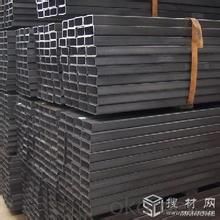
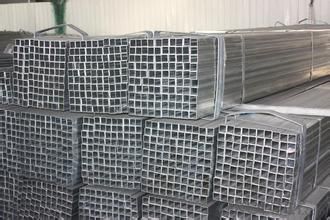
FAQ of Rectangular Steel Tube
①How is the quality of your products?
Our products are manufactured strictly according to national and internaional standard, and we take a test
on every pipe before delivered out. If you want see our quality certifications and all kinds of testing report, please just ask us for it.
Guaranteed: If products’ quality don’t accord to discription as we give or the promise before you place order, we promise 100% refund.
②How about price?
Yes, we are factory and be able to give you lowest price below market one, and we have a policy that “ for saving time and absolutely honest business attitude, we quote as lowest as possible for any customer, and discount can be given according to quantity”,if you like bargain and factory price is not low enough as you think, just don’t waste your time.Please trust the quotation we would give you, it is professional one.
③Why should you chose us?
Chose happens because of quality, then price, We can give you both.Additionally, we can also offer professional products inquiry, products knowledge train(for agents), smooth goods delivery, exellent customer solution proposals.Our service formula: good quality+good price+good service=customer’s trust
SGS test is available, customer inspection before shipping is welcome, third party inspection is no problem.
If you have any question, pls feel free to contact us !
- Q: What are the environmental benefits of using steel pipes?
- Using steel pipes has multiple environmental benefits: 1. Longevity: Steel pipes have a prolonged lifespan, minimizing the need for frequent replacements. This conserves resources and reduces waste generation. 2. Recyclability: Steel is extensively recycled worldwide. When steel pipes reach the end of their life, they can be easily recycled and used to produce new steel products. This reduces the demand for raw materials and saves energy that would otherwise be necessary for manufacturing new materials. 3. Decreased carbon emissions: Steel pipes have a lower carbon footprint compared to materials like concrete or plastic. The manufacturing process emits fewer greenhouse gases, contributing to an overall lower carbon footprint. 4. Corrosion resistance: Steel pipes exhibit high resistance to corrosion, requiring less maintenance and repair compared to other materials. This reduces the need for chemical coatings and treatments that can have detrimental environmental effects. 5. Water conservation: Steel pipes are commonly used in water supply and distribution systems. Their smooth interiors minimize friction, reducing the energy required to pump water through the pipes. This conserves energy and decreases carbon emissions associated with water transportation. 6. Fire resistance: Steel pipes are inherently fire-resistant, making them a safer choice for various applications. In the event of a fire, steel pipes help contain the spread of flames and minimize environmental damage. In summary, the use of steel pipes provides numerous environmental benefits, including durability, recyclability, reduced carbon emissions, water conservation, and fire resistance. These factors make steel pipes a sustainable option for various infrastructure projects.
- Q: Can steel pipes be used for chemical refineries?
- Chemical refineries can utilize steel pipes for their operations. Steel pipes are frequently employed in chemical refineries because of their exceptional strength, long-lasting nature, and resistance to corrosion. Given the harsh conditions present in a chemical refinery, including exposure to corrosive chemicals and extreme temperatures, it is necessary to employ materials that can endure such circumstances. Steel pipes possess the capability to withstand these challenges and are often preferred for their ability to securely and efficiently transport diverse fluids and gases. Furthermore, the weldability of steel pipes permits easy installation and maintenance within intricate refinery systems. All in all, steel pipes are a fitting choice for chemical refineries due to their durability, ability to resist corrosion, and compatibility with the demanding conditions encountered in this industry.
- Q: How do steel pipes handle extreme temperatures?
- Steel pipes can handle extreme temperatures due to their high strength and thermal stability. The properties of steel, such as its excellent heat resistance and low thermal expansion, allow it to withstand both high and low temperatures without significant deformation or structural damage. Additionally, the use of specialized coatings and insulation can further enhance the heat resistance of steel pipes, making them suitable for a wide range of applications in extreme temperature environments.
- Q: Can steel pipes be used for sewage treatment plants?
- Yes, steel pipes can be used for sewage treatment plants. Steel pipes are commonly used in sewage treatment plants due to their durability, strength, and resistance to corrosion. They can efficiently transport wastewater and withstand the harsh chemical environment found in sewage treatment facilities.
- Q: Can steel pipes be used for conveying natural gas?
- Yes, steel pipes can be used for conveying natural gas. In fact, steel pipes are commonly used for this purpose due to their strength, durability, and ability to withstand high pressures. Steel pipes also have excellent resistance to corrosion, which is crucial when transporting natural gas that contains impurities like water and sulfur compounds. Additionally, steel pipes can be easily welded, making them ideal for connecting different sections of the pipeline. Overall, steel pipes are a reliable and safe choice for conveying natural gas.
- Q: How are steel pipes used in the pharmaceutical industry?
- Steel pipes are commonly used in the pharmaceutical industry for various purposes, such as transporting liquids and gases, transferring raw materials and finished products, and providing a reliable and durable infrastructure for the pharmaceutical manufacturing process.
- Q: What is the maximum allowable pressure for steel pipes?
- The maximum allowable pressure for steel pipes typically depends on various factors such as the pipe's diameter, thickness, and material grade. Additionally, it is crucial to consider the intended application and the specific industry standards or codes being followed. Therefore, there is no universal answer to this question, as the maximum allowable pressure can vary significantly depending on these factors. It is essential to consult relevant codes and standards specific to the application to determine the appropriate maximum allowable pressure for steel pipes.
- Q: How are steel pipes used in the manufacturing of hydraulic systems?
- Steel pipes are commonly used in the manufacturing of hydraulic systems due to their durability, strength, and resistance to high pressures. These pipes are typically used to transport hydraulic fluid, providing a reliable and leak-free connection between various components such as pumps, valves, and actuators. Steel pipes also offer the advantage of being able to withstand harsh operating conditions and ensure efficient fluid flow, making them an essential component in hydraulic system manufacturing.
- Q: What are the different grades of steel used in manufacturing pipes?
- The different grades of steel used in manufacturing pipes are typically categorized based on their chemical composition and mechanical properties. Some common grades include carbon steel, stainless steel, alloy steel, and duplex steel. Each grade has its own unique characteristics and is chosen based on the specific requirements of the application, such as corrosion resistance, strength, and temperature resistance.
- Q: Where is the difference between seamless steel pipe and welded pipe?
- In appearance, seamless steel pipe and welded steel pipe difference in the welded pipe wall welded tendons, and seamless No.
Send your message to us
Rectangular Hot Rolled Steel Tube
- Loading Port:
- China Main Port
- Payment Terms:
- TT or LC
- Min Order Qty:
- -
- Supply Capability:
- -
OKorder Service Pledge
OKorder Financial Service
Similar products
Hot products
Hot Searches
Related keywords
